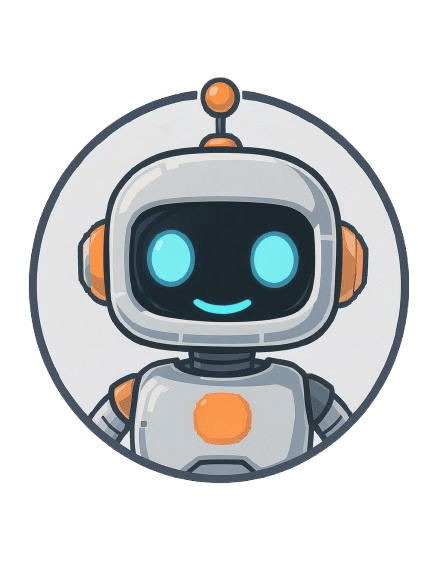
AI Ethics for Beginners: Simple Rules You Need (2025)
Estimated read time: 6-7 minutes
🧑🏫 Practical AI Ethics: Everyday Rules Anyone Can Follow
You just used ChatGPT to write an email to your boss and now you're having a full existential crisis. "Am I cheating? Should I confess? Will they fire me? Is this how AI takes over the world - one awkward email at a time?"
Meanwhile, half your colleagues are quietly using AI for everything and pretending they're just naturally brilliant at writing perfect marketing copy at 9 AM on Monday morning.
Here's what you actually need to know about ethical AI use - the practical rules that prevent disasters, not the philosophy lecture. Plus the one disclosure mistake that could make you look like either a fraud or an over-sharer.
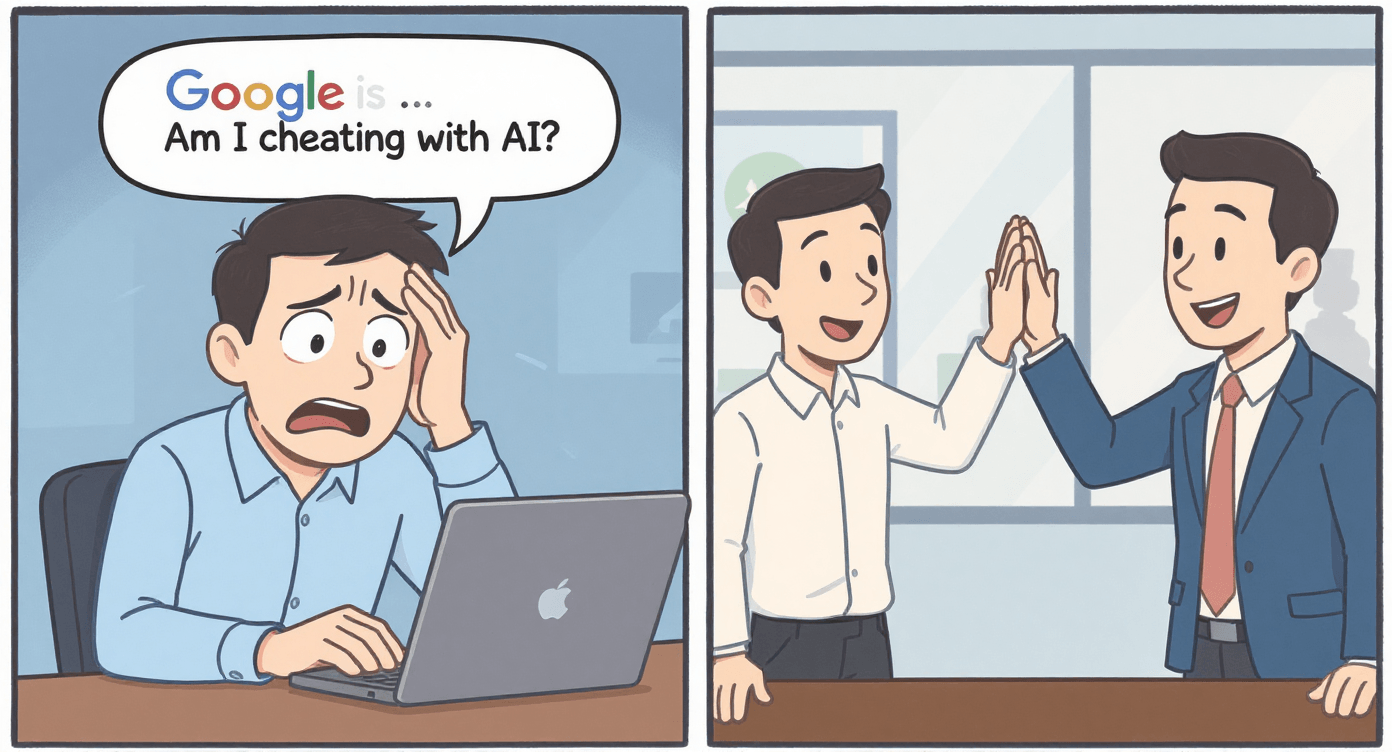
🏡 The AI Ethics Foundation: 3 Simple Rules
Recent research from Microsoft and LinkedIn shows 78% of AI users are bringing their own tools to work.
Here's the reality: AI ethics guidelines for beginners boil down to three core principles.
Rule #1: Don't Pretend AI Work is 100% Your Own Brain
Rule #2: Don't Share Sensitive Info with AI Tools
Rule #3: Always Fact-Check Important Claims
The people stressing most about complex ethical frameworks are often the ones getting the least value from AI tools. Let's tackle each major concern with practical solutions...

📝 Content Ownership: "Am I Plagiarising?" Made Simple
What beginners think: Using AI = academic dishonesty = career suicide
The reality: It's like using spell-check's overachieving cousin who went to university
The Real Disaster Stories:
Sarah's over-disclosure disaster - Spent 3 hours writing a blog post, mentioned she "used AI for research," got accused of being "fake" by competitors who were secretly using AI themselves.
James the fraud: Copy-pasting ChatGPT responses for months while calling himself a "content genius." When clients discovered his process, they felt deceived and pulled their contracts.
The lesson: Both extremes cause problems. The sweet spot? Honest collaboration without unnecessary fanfare.
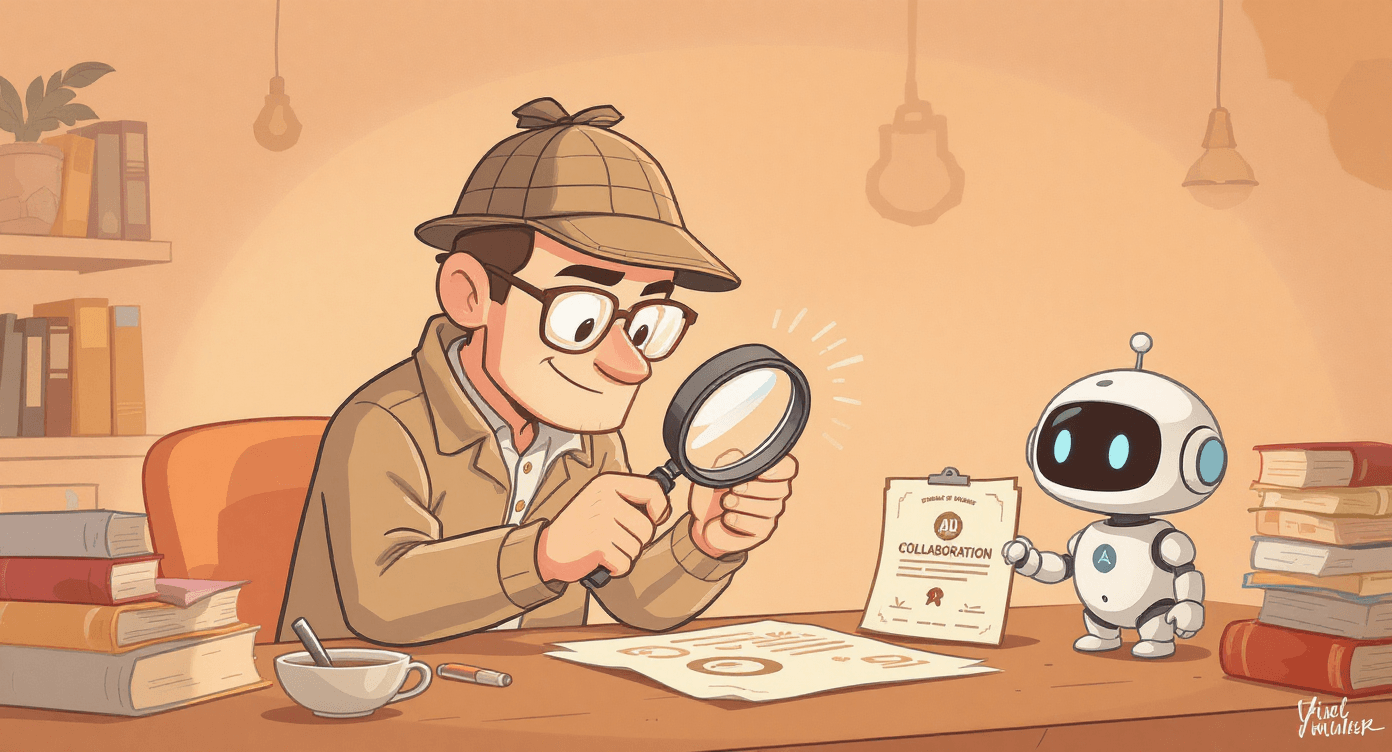
📖 Quick Decision Guide
Business emails - No disclosure needed (Like spell-check, nobody cares)
Internal documents - No disclosure needed (Planning tools don't need disclosure)
Published blog posts - Yes, briefly (Builds trust with readers)
Academic work - Check policy (Varies by institution)
Client work - Depends (What are they paying for?)
Social media posts - Your choice (Personal brand decision)
✅ Disclosure Done Right
❌ The over-sharer: "This email was generated using ChatGPT-4 with additional prompts for tone optimisation and GDPR compliance considerations..."
✅ Actually useful: "Hi team, here's the project update" (No mention needed)
✅ When disclosure helps: "New blog post about productivity tips (written with AI assistance)"

💡 Quick Test Would you be embarrassed if people knew? If yes, either disclose it or don't do it.
Your next step: Decide your personal disclosure standards now and stick to them consistently. Most successful AI users develop simple rules early and avoid decision fatigue later.
If you're still getting comfortable with basic AI concepts, our guide "What is AI" breaks down the fundamentals in plain English.
🧠 Quick Fact: A 2024 study found that 67% of professionals who over-disclose AI use (mentioning it for routine tasks like emails) are perceived as less competent by colleagues whilst those who disclose appropriately for creative work gain 23% more trust.
🔒 Privacy & Data: What's Actually Safe to Share?
Now that you understand content ownership, let's tackle the privacy concern that keeps most beginners awake at night.
The beginner panic: "Is ChatGPT going to steal my identity and sell my secrets to my competitors?"
The actual concern: Accidentally training tomorrow's AI on your private business details
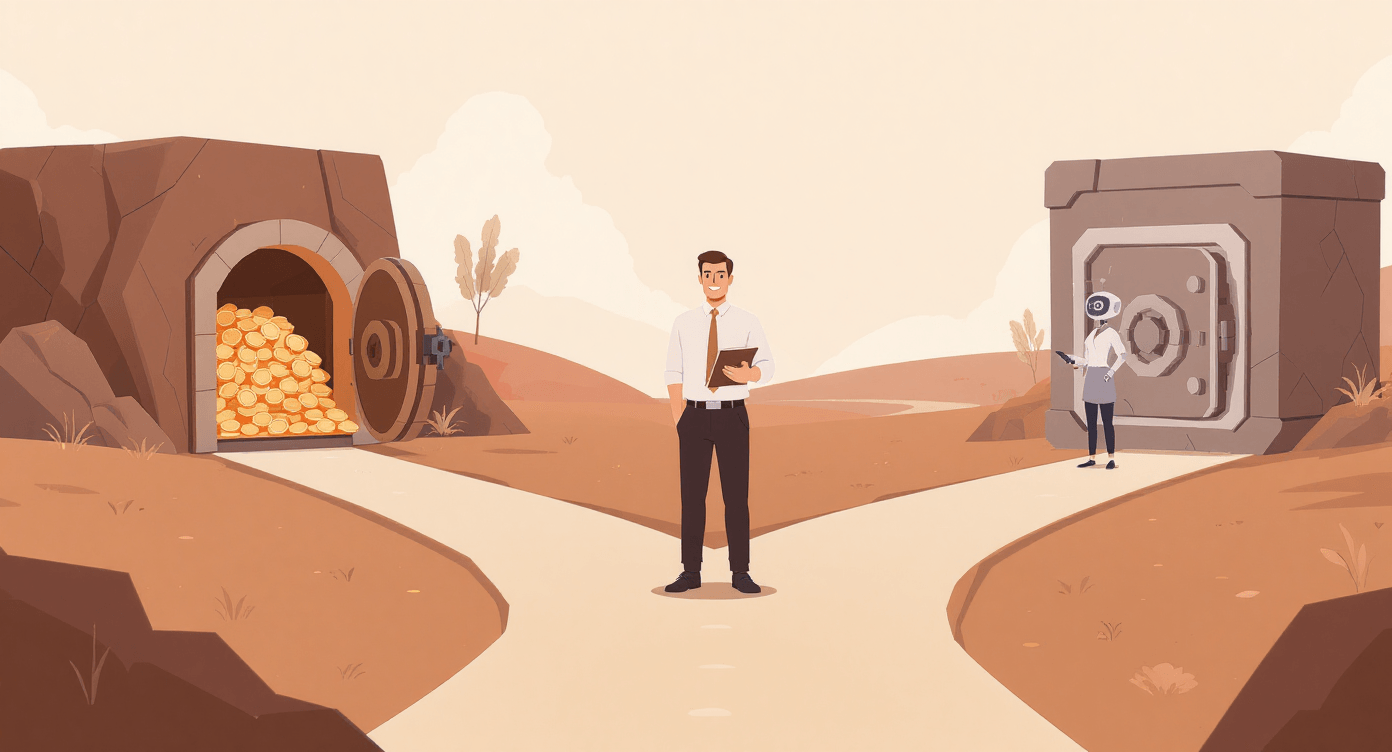
👻 Horror Story That Actually Happened
Marketing manager at a Manchester consultancy uploads "confidential client strategy doc" to analyse with AI. Six months later, a competitor's proposal includes suspiciously similar recommendations.
Coincidence? Maybe. Worth the risk? Definitely not.
The wake-up call: Under UK GDPR regulations, you're responsible for how client data gets processed - even by AI tools.

🔏 The Common Sense Privacy Test
SAFE TO SHARE:
"I run a yoga studio in Manchester"
"My target market is stressed professionals"
"I'm struggling with social media engagement"
General business challenges
Industry trends and common problems
NEVER SHARE:
Real client names and details
Passwords, bank details, ID numbers
Medical records, legal issues
Confidential strategies and data
Personal information of others
🛡️ Privacy Protection Tactics That Actually Work
Use code names: "Company A vs Company B" instead of actual competitor names
Keep it general: "My client in healthcare" not "Dr. Smith's dental practice in Harrogate"
Remove specifics: "Significant revenue increase" not "£50k monthly recurring revenue"
Apply the GDPR test: Would this information require consent to share with a human consultant? If yes, don't share it with AI.
💡 The Gossipy Colleague Test:
Treat AI conversations like you're talking to your most gossipy colleague who works for your biggest competitor. Would you share it? If not, don't type it.

Studies from the MIT Technology Review show most AI companies use conversations to improve their systems - essentially getting free market research from every user interaction.
Your next step: Review your recent AI conversations and check if you've shared anything too specific. Set up these privacy habits now, before they become problems.
Want to start with the safest AI tools? Our "7 Beginner-Friendly AI Tools" guide shows you privacy-conscious options that protect your data whilst delivering excellent results.
🧾 Quick fact: Research shows the average "AI disclosure disclaimer" is now 3x longer than the actual content it describes - with some Instagram captions containing 75-word AI disclaimers for 20-word posts.
📢 Disclosure Guidelines: When and How to Tell People
You've sorted your privacy boundaries - now let's tackle the disclosure confusion that trips up most AI users.
The confusion: "Do I need to announce every time I use AI?"
The simple answer: Context matters more than blanket rules, and most people care about results, not process.

✅ When Disclosure Makes Sense
Professional/Published Content
Blog posts and articles for your audience
Client work (when they specifically ask about your process)
Academic submissions (check your institution's policy - most UK universities now have clear AI guidelines)
Creative work where authenticity is your brand promise
When It's Complete Overkill -
Personal/Internal Use
Personal emails and messages
Internal business planning documents
Social media personal posts
Basic grammar and spell-checking
Meeting notes and to-do lists

🤖 How to Disclose Without Sounding Like a Robot
❌ Awkward over-disclosure: "Morning team! This email was composed using ChatGPT to ensure optimal communication efficiency and stakeholder alignment..."
✅ Natural and appropriate: "New blog post about productivity tips (written with AI assistance)"
✅ Simple and honest: "Research and writing supported by AI"
✅ When context helps: "Used AI to help structure these client recommendations"
💡 The Embarrassment Test:
If you'd be embarrassed for people to know you used AI, either disclose it simply or don't do it. Your comfort level is usually the right guide.

Consumer research shows most people are more impressed than concerned when they discover effective AI use - they want to know how you did it, not judge you for it.
Personal confession: I once wrote a 50-word Instagram caption about my morning coffee and added a 75-word disclaimer about AI assistance. The comments section taught me that less is definitely more when it comes to ethical AI disclosure.
Your next step: Develop simple, consistent disclosure standards. Write them down. Most successful AI users have clear personal policies they follow automatically.
Ready to get consistently better AI results whilst maintaining complete ethical clarity?
Our Prompt Like a Pro course teaches you advanced prompting techniques that work with your values, not against them. You'll learn to collaborate with AI more effectively whilst never compromising on transparency.
🤷♂️ Working WITH AI: The Laziness Question & Accuracy Responsibility
Now we reach the big question that combines skill development with professional responsibility.
The double fear: "If I use AI, will I lose my skills AND what happens when it screws up spectacularly?"
The reality: AI is like having a very smart research assistant who occasionally insists that penguins live in the Arctic and that your best marketing strategy is definitely interpretive dance.
The key is knowing what you can trust and what requires your human expertise.

🚫 What AI Genuinely Can't Replace
Strategic thinking: It doesn't know your customers, market position, or business context like you do
Human relationships: Please don't let AI break up with people for you (yes, people try this)
Expertise application: It can't diagnose your weird rash, give legal advice, or make final business decisions
Judgement calls: AI once confidently told me sharks are mammals (they're not) and that the best way to increase website traffic was "definitely through interpretive dance videos"

🤝 Smart Collaboration: Who Does What
YOU HANDLE:
Context and strategic goals
Final decisions and sign-off
Human relationships and nuance
Industry expertise and judgement
Quality control and fact-checking
AI HANDLES:
Context and strategic goals
Final decisions and sign-off
Human relationships and nuance
Industry expertise and judgement
Quality control and fact-checking
⚠️ When AI Gets Things Spectacularly Wrong (And It Will)
My personal disaster: Published AI-generated statistics about small business failure rates without checking. Turns out "73% of businesses fail due to poor social media presence" isn't remotely a real statistic.
The LinkedIn comments were... educational. And humbling.
The responsibility truth: When AI gets things wrong, your name is still on the work. Your reputation takes the hit, not the AI's.
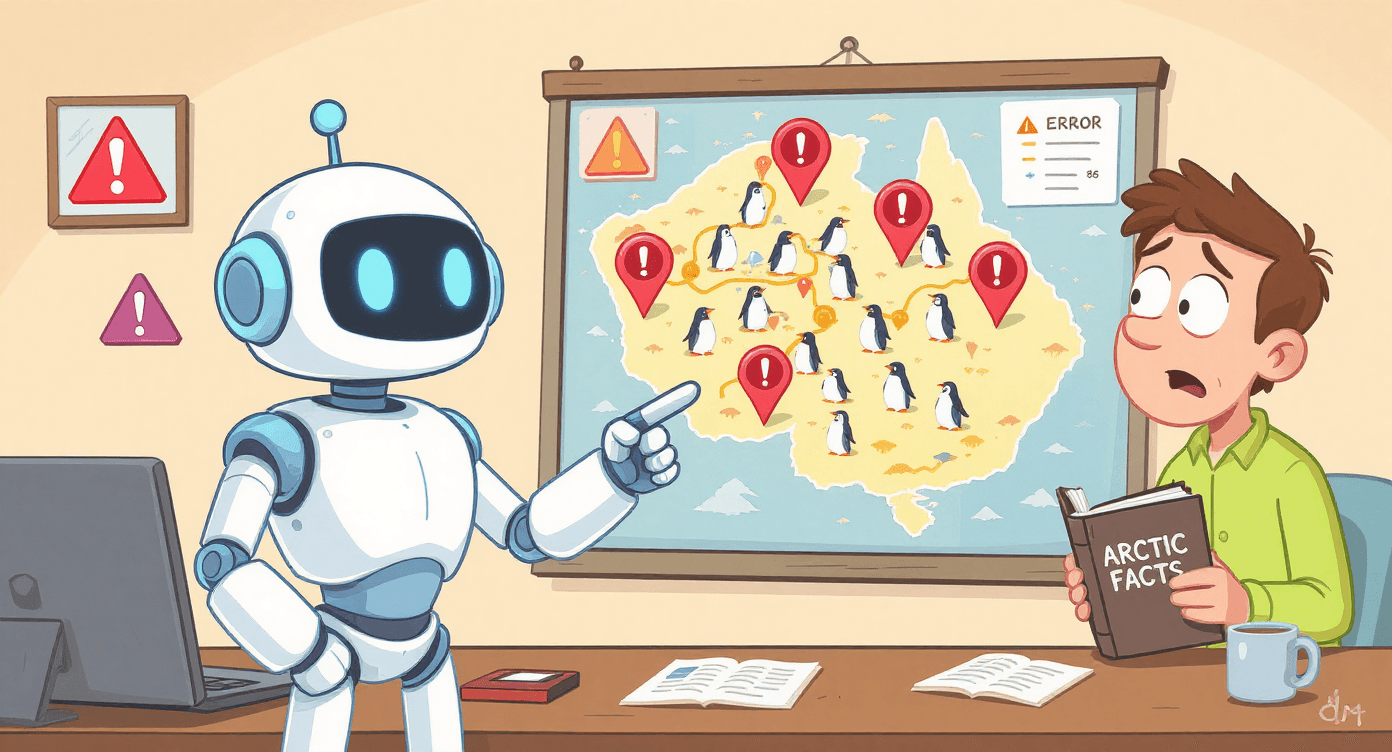
⚠️ Always Verify These
Statistics and "research" claims (AI loves making up convincing numbers)
Current events and recent information (training data has cutoff dates)
Medical, legal, or financial advice (AI isn't qualified and you're not either)
Technical specifications and precise details
Anything you'd bet your professional reputation on
Research from Cambridge University shows AI accuracy drops significantly for specialised knowledge and current information - exactly the areas where mistakes hurt most.
Understanding these limitations helps you spot potential problems before they become LinkedIn apology posts or client relationship disasters.
Your next step: Use AI to get smarter and faster, not to stop thinking entirely. The goal is augmented intelligence, not artificial replacement.
If you want to avoid the most common AI pitfalls entirely, check out our "5 Common Mistakes Beginners Make" guide - it covers the ethical traps that catch most new users.
📋 The Simple AI Ethics Checklist
Here's your practical framework for navigating 99% of AI ethics situations without overthinking:
🎯 The 4-Question Test
Before using AI for anything important, ask yourself:
"Would I be comfortable if my biggest competitor saw this conversation?"
If no → Don't share it with AI (privacy risk)
If yes → You're probably fine privacy-wise
"Am I pretending this AI work came entirely from my brain?"
If no → You're handling attribution properly
If yes → Add simple disclosure or own up to collaboration
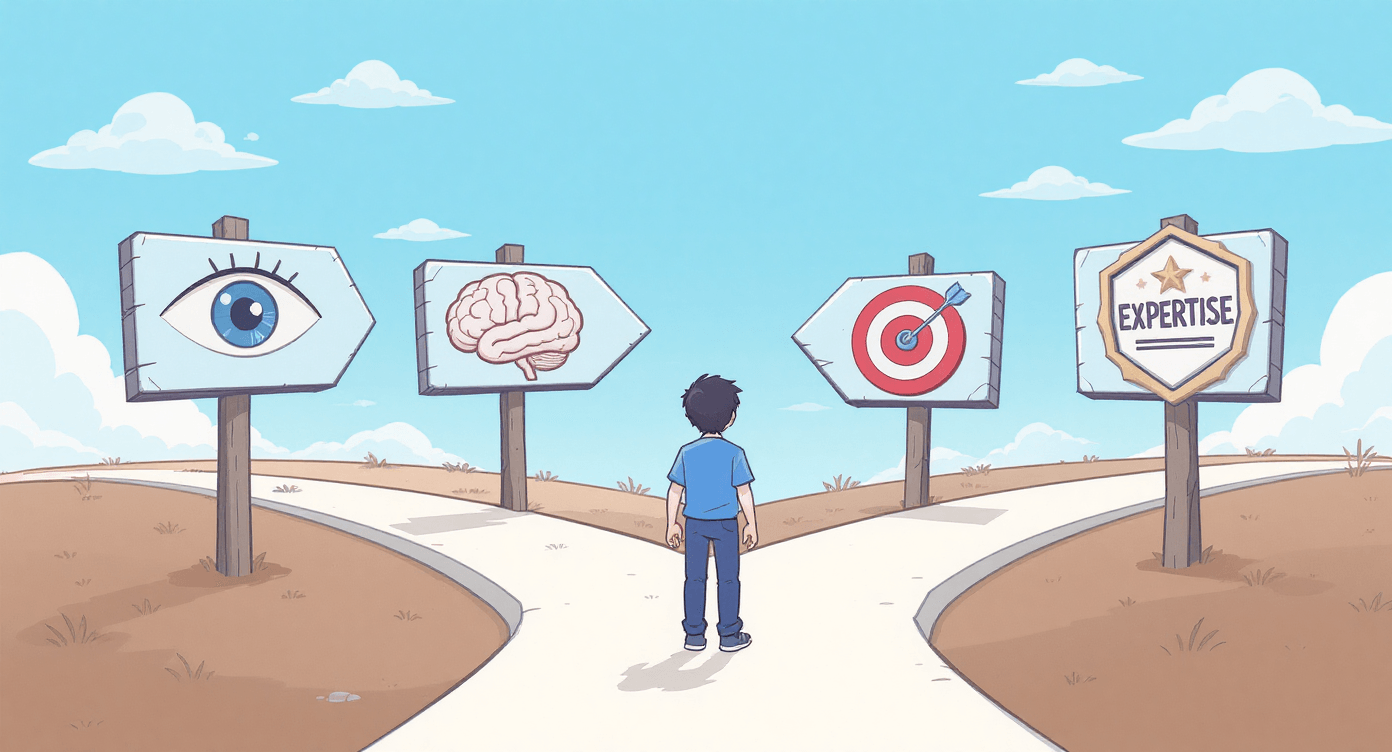
"Would I bet my business on this AI information being 100% accurate?"
If no → Verify before using or sharing
If yes → Double-check it anyway (AI can be confidently wrong)
"Am I still adding my own expertise, judgement, and personality?"
If no → You're being lazy, not efficient
If yes → That's proper AI collaboration
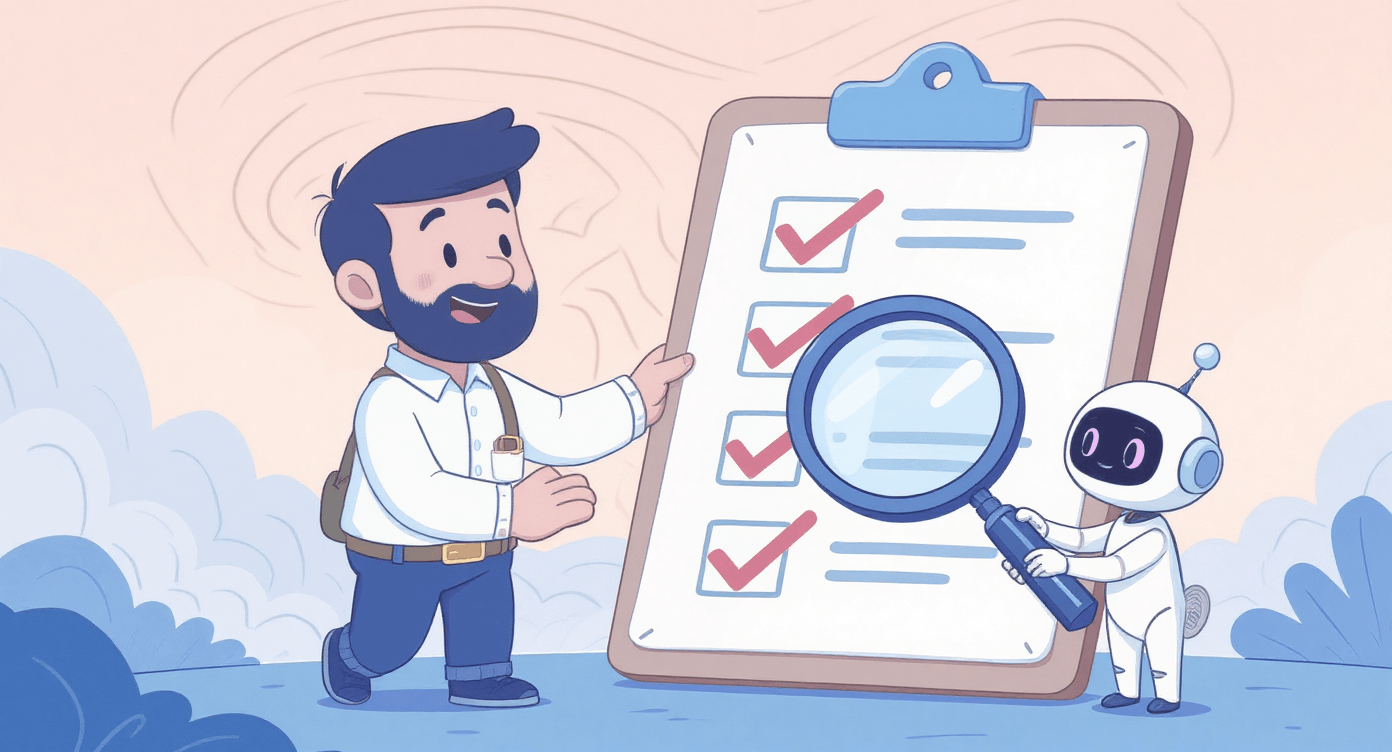
The SimplifyAI Ethics Rule: If you can honestly answer these 4 questions without cringing, you're probably handling ethical AI use just fine.
Final reality check: Focus on being thoughtful and honest, not perfect. Most AI ethics concerns have straightforward answers when you apply common sense and professional standards.
🗺️ Your Ethical AI Action Plan
Ready to put this into practice? Here's your step-by-step approach:
This week: Review your recent AI conversations using the privacy test above. Set up privacy-conscious habits before they become problems.
Next week: Establish your personal disclosure standards and write them down. Decision fatigue is real - having clear rules helps.
This month: Practice the 4-question test until it becomes automatic. Most ethical issues are prevented by thinking ahead, not fixing problems later.
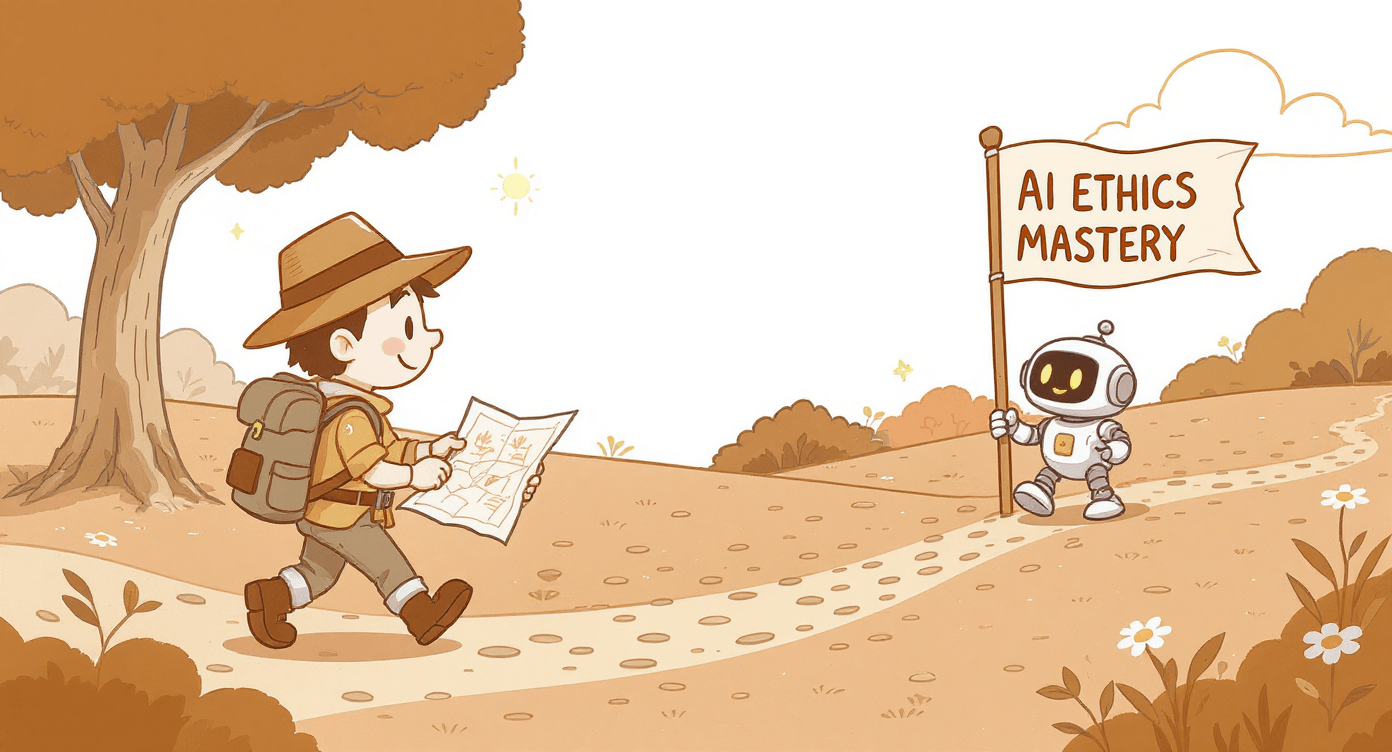
📝 Your Homework Assignment
Before your next AI session, ask yourself: "What would I never want my biggest competitor to know?" Write it down. That's your privacy boundary.
Then decide: "When does my audience care about my process vs my results?" That's your disclosure guide.
Want the complete framework without hunting through this guide every time?
Download our Beginner AI Cheat Sheet it's your essential starter guide to mastering AI without feeling lost. It explains complex terms in plain English, introduces beginner-friendly tools you can start using today, and gives you a roadmap to avoid common pitfalls.
Packed with examples, pro tips, and trusted resources, it’s designed for small business owners, creators and anyone who wants to get smarter with AI... fast.
📝 The Bottom Line
Ethical AI use isn't about following complex philosophical rules - it's about being honest, protecting privacy, and taking responsibility for your decisions.
The goal isn't perfection, it's being reasonable. Most AI ethics "dilemmas" have straightforward answers when you apply basic honesty and common sense.
Research shows that people who develop clear AI ethics guidelines early are more confident users and get better results. They spend less time worrying about what's "allowed" and more time solving real problems.
The real ethical issue isn't whether you use AI - it's whether you use it thoughtfully and transparently.
Start with honesty, add common sense, and you'll navigate 99% of situations just fine.
The future belongs to people who can use AI effectively whilst staying human. That's not an ethical dilemma - that's an opportunity.

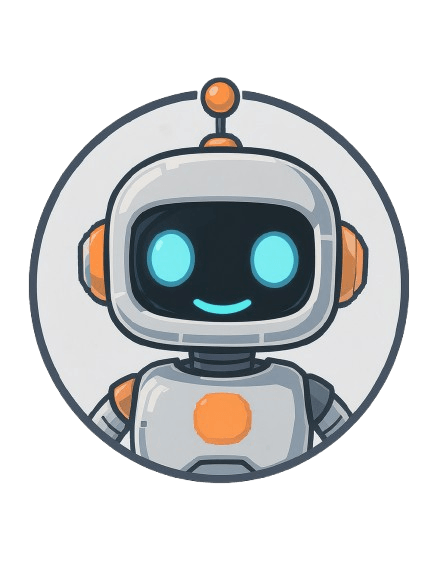
Simplify AI
Making AI make sense -- one prompt at a time
Declaration
Some links on this site are affiliate links.
I may earn a small commission, but it doesn't
cost you anything extra.
I only recommend tools i trust
Thank you for your support
Socials
Location
Based in Mansfield, Nottinghamshire
Simplifying AI for beginners, no matter
where you're starting from.
All Rights Reserved.